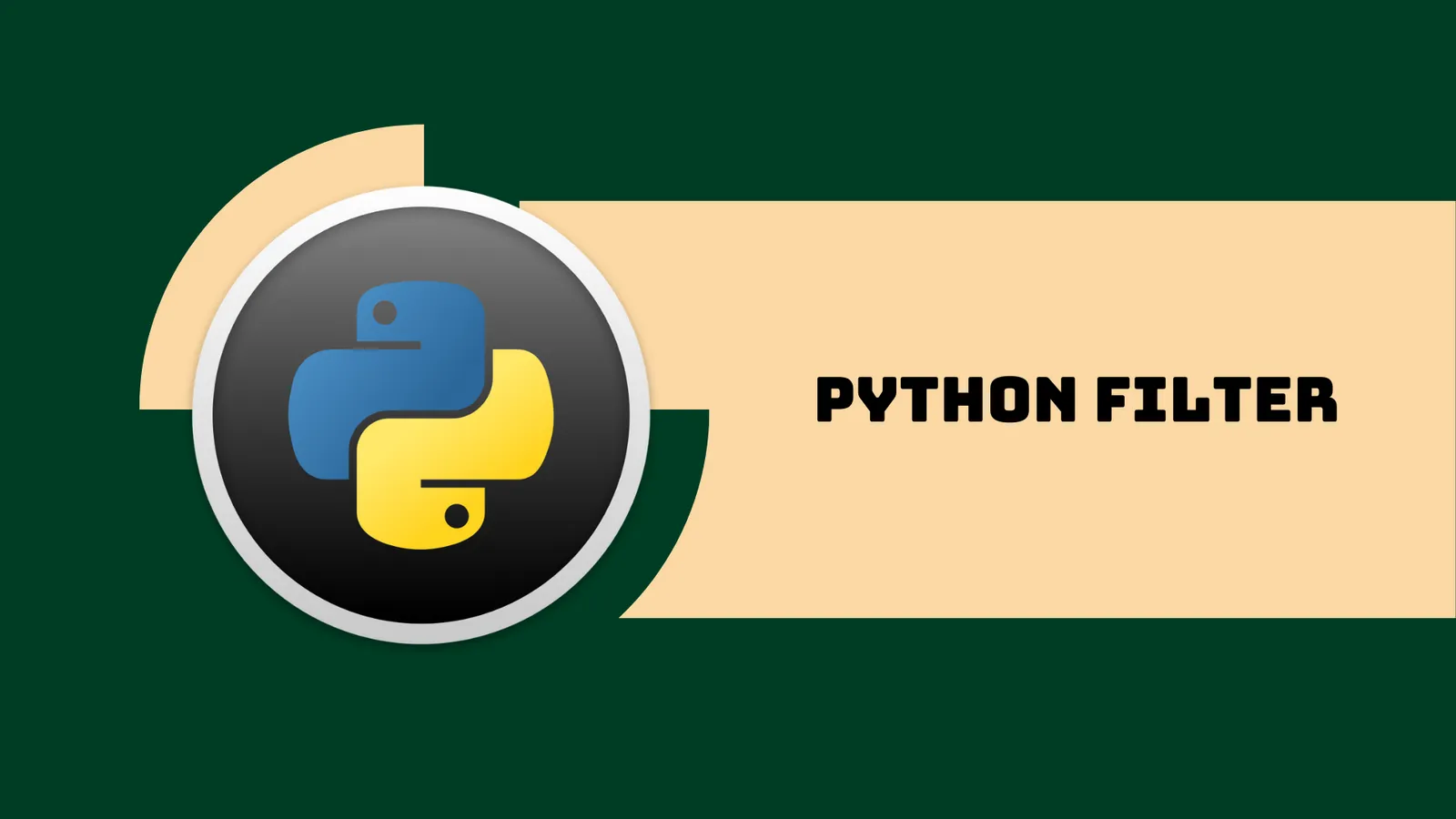Python filter: How to Filter Items in Python with Example
The filter() method filters the given iterable with the help of a function that tests each item in the iterable to be true or not. Python filter() method constructs the iterator from items of an iterable for which a function returns true.
Python filter()
Python filter() is an inbuilt function that returns an iterator where the items are filtered through a function to test if the item is accepted or not.
Syntax
filter(function, iterable)filter() Parameters
The function takes two parameters:
- function - a function that runs for each item of an iterable
- iterable - a sequence that needs to be filtered like sets, lists, tuples, etc
filter() Return Value
- The
filter()function returns an iterator.
Example: Filter Vowels From List
letters = ['a', 'b', 'd', 'e', 'i', 'j', 'o']
# a function that returns True if letter is vowel
def filter_vowels(letter):
vowels = ['a', 'e', 'i', 'o', 'u']
if letter in vowels:
return True
else:
return False
# selects only vowel elements
filtered_vowels = filter(filter_vowels, letters)
# converting to tuple
vowels = tuple(filtered_vowels)
print(vowels)Output:
('a', 'e', 'i', 'o')Here's how the above program works :
- each element of
lettersis passed to thefilter_vowels()function - if
filter_vowels()returnsTrue, filter() selects the element
Note: Here, the program returns the iterator, which we converted into a tuple using the vowels = tuple(fitered_vowels).
Thanks for reading !!!
#python #python filter

2.20 GEEK